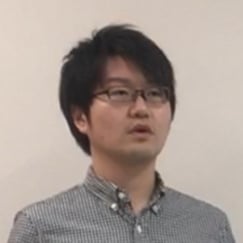Studies describing cultural changes in Japan have shown that Japanese culture has become more individualistic over time. People increasingly came to live more independently from family members. Specifically, the rate of people living alone, the rate of nuclear households, and the divorce rate increased, whereas the rate of three-generation households and the household size decreased between 1947 and 2015. These results indicate that family structure became more individual-based in Japan, suggesting that Japanese culture changed toward greater individualism. These increases in individualism are also supported by research that examined baby names in Japan.
In 2021, Professor Ogihara from the Aoyama Gakuin University examined the historical changes in the rates of unique names in Japan between 2004 and 2018 by analysing raw data generated from annual surveys on baby names. The study showed that the rates of unique names increased, providing further evidence of the rise in uniqueness-seeking and individualism in Japan. In addition, he conducted further analyses on this data (investigating another indicator of names that was not used in the previous study) and found that common names decreased between 2004 and 2018, confirming the previous findings. However, these studies had a limitation: the periods of time examined were relatively short.
To overcome this limitation, individual baby names published in newsletters of municipalities (cities, towns, and villages) in Japan over40 years were collected and analysed. These municipalities were geographically diverse: located all over Japan, from the southern to the northern part, near the coast and inland. The municipalities were also demographically diverse: in both rural and urban areas. The total sample size was 58,485, and the average sample size at the year level was 170 names.
The researcher calculated the rates of unique names in each municipality by year. First, he counted duplicate names held by more than one baby each year. Next, he calculated how many names were unique by subtracting the number of duplicated names from the total number of names in a given year. Finally, the Japanese professor divided this number by the annual sample size for each municipality.
To examine temporal changes in baby names, two indices were computed by following previous studies. The first is the correlation with the year, which indicates whether the rate of unique names increased, decreased or stayed the same. The second index is annual change. Even if the correlation with the year is high, the extent of its absolute change may be too small to regard it as a change. The unstandardized regression coefficients have been used when predicting the rate of unique names by year.
In all 10 municipalities, correlations with the year and their annual changes for a given year were sufficiently positive, showing that the rates of unique names increased over time. These increases in unique names were consistently found both in rural and urban municipalities, as well as from the southern part to the northern part of Japan. This indicated that the change was found geographically broadly in Japan. Moreover, the correlations with year and the annual changes for girls were larger than those for boys. Thus, names for girls became more unique than names for boys at a faster speed. Here are the examples of names, which are either modern or still actively given: 蓮 (Ren), 湊 (Minato), 大翔 (Hiroto), 大和 (Yamato), 陽翔 (Haruto), 結月(Yuzuki), 結愛 (Yua), 結菜 (Yuina), 杏 (An), さくら (Sakura).
These results suggest that the rise in uniqueness-seeking and individualism continued in Japan over the past 40 years from 1979 to 2018.
Bibliography
Ogihara Y, Fujita H, Tominaga H, Ishigaki S, Kashimoto T, Takahashi A, Toyohara K, Uchida Y (2015) “Are common names becoming less common? The rise in uniqueness and individualism in Japan” in Frontiers in Psychology 6 https://doi.org/10.3389/fpsyg.2015.01490
Ogihara, Y. (2021). How to read uncommon names in present-day Japan: A guide for non-native Japanese speakers. Frontiers in Communication, 6, 631907. https://doi.org/10.3389/fcomm.2021.631907
Ogihara, Y. (2022). Common names decreased in Japan: Further evidence of an increase in individualism. Experimental Results, 3, e5. https://doi.org/10.1017/exp.2021.27
Ogihara Y (2021) “Direct evidence of the increase in unique names in Japan: The rise of individualism” in Current Research in Behavioral Sciences 2, https://doi.org/10.1016/j.crbeha.2021.100056
Ogihara Y, Ito A (2022) “Unique names increased in Japan over 40 years: Baby names published in municipality newsletters show a rise in individualism, 1979-2018” in Current Research in Ecological and Social Psychology 3. https://doi.org/10.1016/j.cresp.2022.100046

